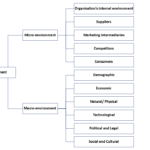Labour Laws in India

Labour laws in India encompass a wide array of legal provisions designed to protect the rights of workers, ensure fair wages, and promote healthy working conditions. The landscape of labour laws in India has undergone significant changes. Laws evolved, thus reflecting evolving industrial dynamics, societal values, and global trends. The labour laws hold significant importance and are thus part of syllabus of various competitive exams. Organizations dealing with such laws such as Employees’ Provident Fund Organization(EPFO), Employees’ State Insurance Corporation (ESIC), to name a few regularly conducts the exam.
History of Labour Laws
The historical context of Indian labour laws is rooted in the nation’s colonial past and its post-independence journey toward industrialization and economic development. During British rule, India underwent significant industrialization, particularly in sectors like textiles, jute, and mining. The industrial boom brought about complex labour issues, including poor working conditions, long working hours, and inadequate wages. A lot many people were forced into poverty and to leave their jobs. Unsatisfied by the prevailing conditions, the workers as well as the employers started raising their voice against the British government. The workers demanded for better working conditions, right to organize and protection of wages whereas the employers demanded to keep the low labour cost.
The British government introduced early labour regulations in response to rising concerns about worker welfare and to address unrest. The government introduced Factories Act, 1883 to regulate industrial working conditions in India. It aimed to improve the safety and health of factory workers, albeit with limited scope. It focused on working hours, abolition of child labour, restriction of women in night shift, etc.
Later, a statute to redress the disputes between the workers and the employers was passed in the form of Trade Dispute Act 1929 which was later repealed by the Industrial Dispute Act-1947.
Constitutional mandate
The Constitution of India includes provisions for workers’ rights and social justice. Article 16, 19, 23 and 24 protects the dignity of the human labour.
The Directive Principles of State Policy outlined the state’s responsibility to ensure fair working conditions, social security, and living wages. Article 39, 41, 42, 43, 43A & 54 deals with equality of wages, standard of life, worker’s participation in the management.
Various other provisions also falls under Union and Concurrent list.
Categorization of Labour laws as per Appropriate Government
- The Employees’ State Insurance Act, 1948
- The Employees’ Provident Fund and Miscellaneous Provisions Act,1952
- The Dock Workers (Safety, Health and Welfare) Act, 1986
- The Mines Act, 1952
- The Iron Ore Mines, Manganese Ore Mines and Chrome Ore Mines Labour Welfare (Cess) Act, 1976
- The Iron Ore Mines, Manganese Ore Mines and Chrome Ore Mines Labor Welfare Fund Act, 1976
- The Mica Mines Labour Welfare Fund Act, 1946
- The Beedi Workers Welfare Cess Act, 1976
- The Limestone and Dolomite Mines Labour Welfare Fund Act, 1972
- The Cine Workers Welfare (Cess) Act, 1981
- The Beedi Workers Welfare Fund Act, 1976
- The Cine Workers Welfare Fund Act, 1981
- The Child Labour (Prohibition and Regulation) Act, 1986.
- The Building and Other Constructions Workers’ (Regulation of Employment and Conditions of Service) Act, 1996.
- The Contract Labour (Regulation and Abolition) Act, 1970.
- The Equal Remuneration Act, 1976.
- The Industrial Disputes Act, 1947. 12
- The Industrial Employment (Standing Orders) Act, 1946.
- The Inter-State Migrant Workmen (Regulation of Employment and Conditions of Service) Act, 1979.
- The Labour Laws (Exemption from Furnishing Returns and Maintaining Registers by Certain Establishments) Act, 1988
- The Maternity Benefit Act, 1961
- The Minimum Wages Act, 1948
- The Payment of Bonus Act, 1965
- The Payment of Gratuity Act, 1972
- The Payment of Wages Act, 1936
- The Cine Workers and Cinema Theatre Workers (Regulation of Employment) Act, 1981
- The Building and Other Construction Workers Cess Act, 1996
- The Apprentices Act, 1961
- Unorganized Workers Social Security Act, 2008
- Working Journalists (Fixation of Rates of Wages Act, 1958
- Merchant Shipping Act, 1958
- Sales Promotion Employees Act, 1976
- Dangerous Machines (Regulation) Act, 1983
- Dock Workers (Regulation of Employment) Act, 1948
- Dock Workers (Regulation of Employment) (Inapplicability to Major Ports) Act, 1997
- Private Security Agencies (Regulation) Act, 2005
- The Employers’ Liability Act, 1938
- The Factories Act, 1948
- The Motor Transport Workers Act, 1961
- The Personal Injuries (Compensation Insurance) Act, 1963
- The Personal Injuries (Emergency Provisions) Act, 1962
- The Plantation Labour Act, 1951
- The Sales Promotion Employees (Conditions of Service) Act, 1976
- The Trade Unions Act, 1926
- The Weekly Holidays Act, 1942 13
- The Working Journalists and Other Newspapers Employees (Conditions of Service) and Miscellaneous Provisions Act, 1955
- The Workmen’s Compensation Act, 1923
- The Employment Exchange (Compulsory Notification of Vacancies) Act, 1959
- The Children (Pledging of Labour) Act 1938
- The Bonded Labour System (Abolition) Act, 1976
- The Beedi and Cigar Workers (Conditions of Employment) Act, 1966
Classification of Labour laws in India
Industrial Relation
- Trade Unions Act, 1926
- Industrial Employment Standing Order Act, 1946.
- Industrial Disputes Act, 1947
Laws related to Wages
- Payment of Wages Act, 1936
- Minimum Wages Act, 1948
- Payment of Bonus Act, 1965
Equality and Empowerment of Women
- Maternity Benefit Act, 1961
- Equal Remuneration Act, 1976.
Child labour
- Bonded Labour System (Abolition) Act, 1976
- Child Labour (Prohibition & Regulation) Act, 1986
- Children (Pledging of Labour) Act, 1933
Social Security
- Workmen’s Compensation Act, 1923.
- Employees’ State Insurance Act, 1948.
- Employees’ Provident Fund & Miscellaneous Provisions Act, 1952.
- Payment of Gratuity Act, 1972.
Employees State Insurance Act, 1948
Employees Provident Fund And Misc. Provisions Act, 1952
Payment of Gratuity Act, 1972
Workmen’s Compensation Act, 1923
Maternity Benefit Act, 1961
Want to read some more articles?
-
 Shanghai Cooperation Organization (SCO): Origin, Members, Facts, etc for UPSC and other exams
Shanghai Cooperation Organization (SCO): Origin, Members, Facts, etc for UPSC and other exams -
 BRICS: Origin, members and others for UPSC, PSC & other exams
BRICS: Origin, members and others for UPSC, PSC & other exams -
 BIMSTEC for UPSC: Origin, Members & More
BIMSTEC for UPSC: Origin, Members & More -
 General Science for Competitive exams: UPSC, PSC, APFC, EO-AO, SSC, etc
General Science for Competitive exams: UPSC, PSC, APFC, EO-AO, SSC, etc -
 THE TRADE UNIONS ACT, 1926 for UPSC EPFO APFC/EO-AO, ALC, and Other exams
THE TRADE UNIONS ACT, 1926 for UPSC EPFO APFC/EO-AO, ALC, and Other exams -
 Understanding Macroenvironment: Marketing Environment in Principles of Marketing
Understanding Macroenvironment: Marketing Environment in Principles of Marketing -
 Understanding Microenvironment: Marketing Environment in Principles of Marketing
Understanding Microenvironment: Marketing Environment in Principles of Marketing -
Interjections in English
-
Conjunctions in English
Copyright© 2024 | All rights reserved | Made in India